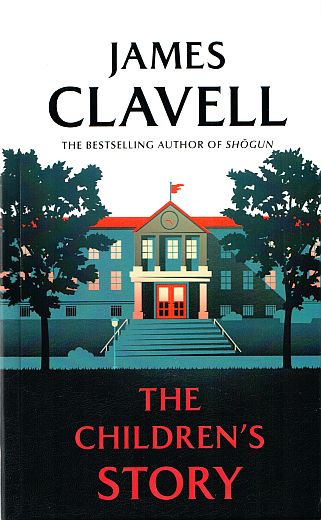

| THE CHILDREN'S STORY James Clavell Ashland, OR: Blackstone Publishing, November 2022 |
Rating: 5.0 High |
|||
| ISBN-13 978-1-9825-3764-7 | ||||
| ISBN-10 1-9825-3764-7 | 114pp. | HC/GSI | $11.99 | |
We have had plenty of warnings.
"When fascism comes to America it will be wrapped in the American flag." This prophetic warning, variously attributed to author Sinclair Lewis and Louisiana governor Huey Long, could have been written about post-9/11 America. Using fear, electoral fraud, and the smokescreen of terrorist attacks, the Bush administration has given us a lesson in how quickly a nation can be hijacked and core tenets of democracy trampled. Who would have imagined that once sacred principles of liberty—the right to a fair and timely trial, the checks and balances that keep our leaders from being dictators, the freedom from arbitrary detention, the international prohibitions against torture and wars of aggression—could be thrown on the scrap heap so quickly? – Standing Up To the Madness, Page 1 3 |
For all its abuses, the Bush/Cheney administration pales next to what we saw from Trump. At one point he declared, "I have an Article 2 where I have the right to do whatever I want as president." 4 And he tried to do just that. He and his enablers are still trying.
The New Teacher was young, pretty, poised, and very well prepared. She talked smoothly and answered all the children's questions. She sang a song which pleased them. All the children liked her, except Johnny.
When they began to recite the Pledge of Allegiance, the teacher interrupted to ask them if they knew what "pledge" meant. "It's like a promise," Mary said. The New Teacher told her that was very good. Then she asked them what "allegiance" meant, and everyone was puzzled. After a pause, the New Teacher explained. "...you are promising or pledging support to the flag and saying that it is much more important than you are. How can a flag be more important than a real live person?"
More discussion took place. The New Teacher looked at the flag and said it was a very pretty one. She wished she could have a piece of it — that everyone could have a piece of their own special classroom flag. Scissors were found, and because it was Mary's birthday, she got to cut the flag into pieces so every child could have one in their pocket.
James Clavell wrote his allegorical tale during the height of the Cold War. It presupposes that America has been conquered by a foreign enemy. It consists only of this episode in a single classroom. It thus represents in microcosm the changes taking place throughout the conquered nation. This enemy is sophisticated. It will not plant its boots on the faces of Americans and grind them down forever. It knows a better way: subversion, beginning at the beginning of education. Even Johnny, who distrusts the New Teacher at first, succumbs to her blandishments in the end.
Threats to our democracy can come from within as well as from without. They can be intentional, as depicted in such novels as It Can't Happen Here by Sinclair Lewis and Seven Days in May by Fletcher Knebel and Charles W. Bailey II. Lewis's novel was published in 1935, before many Americans understood the danger growing in Germany's Third Reich. It was prescient then; it is even more prescient now. Shelves full of non-fiction books have been published to document and explain the troubling political trends in our country since 1980.1 All that scholarship undergirds the day-to-day reporting we've seen since 6 January 2021: reporting that unveils a torrent of lies and misdirection; unending attempts to put lipstick on a whole herd of pigs.2
But sometimes all you need to understand how freedom dies is a deceptively simple parable like this tale of Clavell's. I rate it a must-read and give it full marks.

 To contact Chris Winter, send email to this address.
To contact Chris Winter, send email to this address.